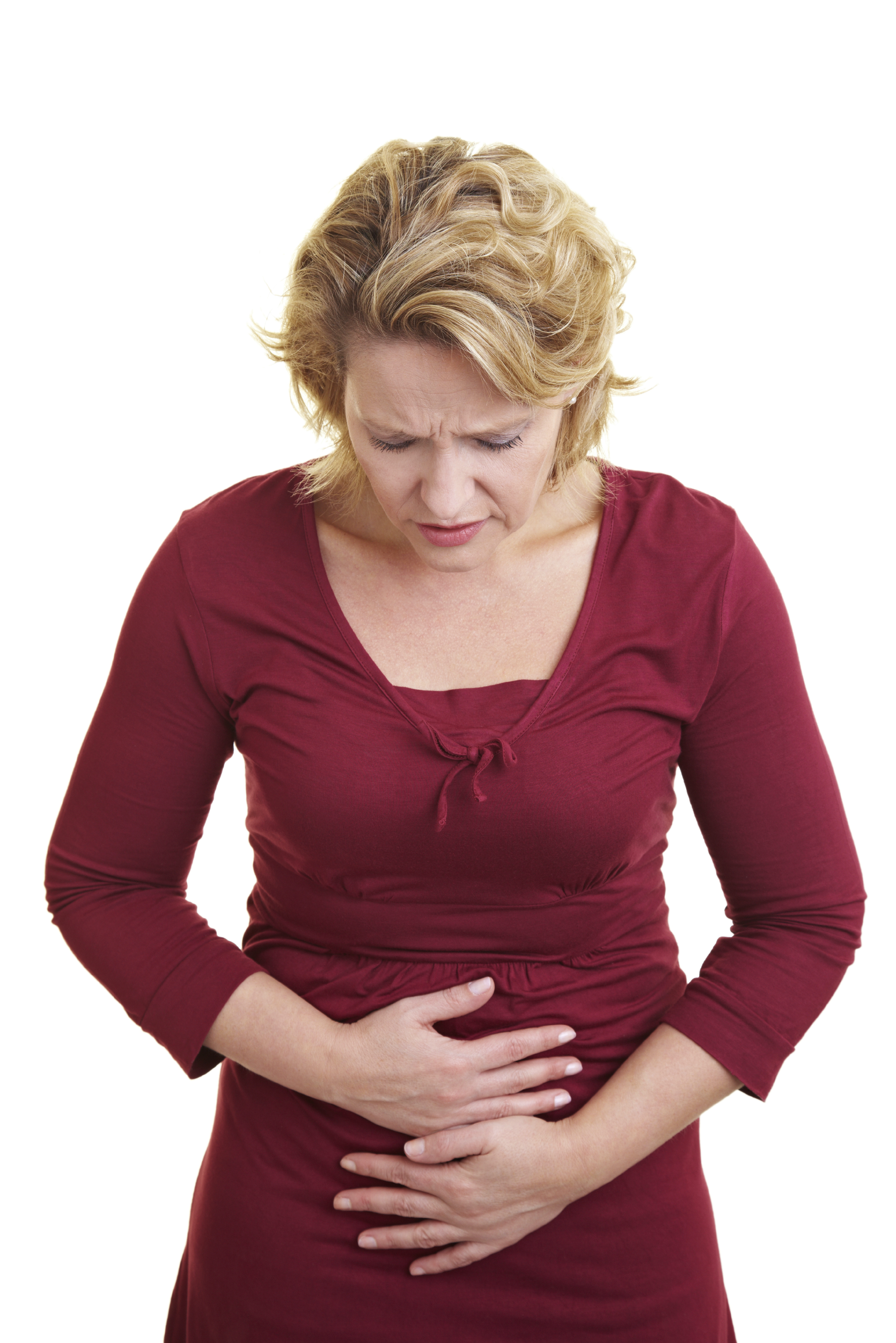Weight Loss Surgery and Constipation: The Key Ingredients

We often have people tell us they are constipated at their first post-surgery appointment. It is important however to realise that constipation and slower bowels are two very different things - it’s not how often you go, it is how you go! After surgery, particularly during the recovery stages, the amount of food you eat is far less than pre-surgery. With less food comes less waste, so it is likely you will use your bowels less. As long as you are not uncomfortable, this is not a problem. If your motions are less frequent, hard, dry and you need to strain to pass them, then you are likely constipated.
The ‘key ingredients’ to help manage periods of constipation are:
- Fibre – this helps to bulk and soften bowel motions and move them through the intestine
- Fluid – fibre absorbs fluid, so if you increase fibre without ensuring your fluid intake is adequate it can make constipation worse.
During the weight loss surgery recovery phases of the fluid and smooth puree diets, it can be a significant challenge to obtain enough fibre and fluid and for many this results in constipation.
Boosting Your Fibre Intake
During the fluid phase:
- Blitz rolled oats and chia seeds in your food processor to form the texture of flour and add to smoothies and shakes. Don’t forget to add plenty of fresh fruit as well.
- Add plenty of vegetables to soups. Chop up your favourites and blitz in your food processor. Make sure you blend them enough that they could pass through a straw. Onion, carrot and celery work well to boost both the fibre and flavour of almost any soup.
- Add legumes or lentils into soups to boost both protein and fibre. Once blended they help make soups creamy and will help keep you feeling satisfied. Chickpeas, bean mixes and lentils all work well.
During the smooth puree phase:
- Introduce porridge or Weetbix® with plenty of low fat milk at breakfast. Sprinkle with crushed seeds and/or try topping with some pureed fruit.
- Add plenty of vegetables and legumes or lentils into stews and casseroles. Remember to blend into a smooth consistency (much like the texture of smooth mashed potato).
During the soft diet phase:
- Naturally soft fruits such as banana, mango, ripe pears and peaches can be reintroduced.
- Well cooked vegetables that are soft enough to cut with a fork can also be enjoyed.
Longer term:
- Remember to focus on wholemeal and wholegrain bread and cereal products.
- Include fresh fruits and vegetables daily. Include skins where you can , just chew them well.
- Include some regular exercise.
It is important in all dietary phases to focus on your fluid intake – remember to sip, sip, sip and aim for 1.5L of fluid daily.
For detailed information on where to find fibre in foods speak to your dietitian or check out the section on fibre in Your Complete Guide to Nutrition for Weight Loss Surgery.
Need Extra Help?
If you are constipated at any stage, you may find a fibre supplement useful. A soluble fibre supplement such as Benefiber® or Metamucil Fibresure® can help. These products are colourless and tasteless, hence can be dissolved in a range of fluids. They are best taken regularly, with plenty of fluid. They are not likely to be effective taken if you take a random dose once constipation is established.
The following recipe for prune, bran and apple mix can be a useful addition to your diet to improve your bowels. Try adding 1 tablespoon to your breakfast, or with some yoghurt for a high fibre, high protein snack.
Prune Bran Apple Mix
75g All-bran®
250g Apple Puree or apples, pureed
75g prunes, pureed
50ml orange juice
Blend together adding more juice if required. Freeze in ice cube trays and defrost 1 cube at a time as needed.
If constipation persists, discuss this with your surgical team or GP. Please seek medical advice before commencing laxatives.
I developed some wicked Constipation several months after surgery. Nothing seemed to work except inserting a glycerin suppository up my rectum every three days. I finally stumbled onto a cure, at least for me. I found out that if I eat an apple before I go to bed, the problem went away. But it is important to eat the skin of the apple also. So for the last 6 months, I eat an apple or two each day, and I am no longer bothered by this issue.
Good thinking. A healthy bedtime snack with the Fiber you need.
I'm so glad to have found this. I have been having problems. This gives me some good ideas about things I can try. Thanks.
Yeah, I think it's a fine art to manage.
Fine art. Sigh
Hi. I'm hoping someone can advise. I'm still waiting for my very first appointment with the dietician at the START of the gastric sleeve process but there is quite a while to wait apparently as they're short on dieticians. Sigh.
So in the meantime, it's just me and google....and you guys.
As well as the weight that kept piling on over the years, I've also developed diverticulitis in the last 18 months (bitty bits of food getting stuck in colon, getting inflamed then infected), and in the last few months it turns out that I'm riddled with candida (yeast infection). Happy Days. :/
Both of these require careful changes to my diet (on top of my high protein/low carb changes for the future gastric sleeve).
For the candida, I'm reading fairly stock standard low carbs but also NO GRAIN AT ALL. Many Beans are out too because of how the tummy needs to work harder breaking down whatever it is. ... I'm still reading. Extremely limited on fruits because of the natural sugars. Certain vegetables that are still lower carb but off the list for candida. OK. I figure I can work all that into my life. ......but.....
For the diverticulitis, it's all about high FIBRE. It needs the Beans. It needs the grain foods but the right ones. The absolute bugger that I've been up against since last year is that with diverticulitis is that I'm meant to avoid seeds, nuts, whole grain, skins of fruits ........basically things that end up getting trapped in my colon.
So that really messes with my high Protein and high FIBRE fixes in my diet. I'm so confused. I realise this is a problem for a professional to help me untangle and I will patiently wait my turn to see the dietician.
My question for you all IS related to this post. I promise. ![]() My fibre content of my food has since been whittled down to "poo powder".....the lovely term I give to the metamusils of this world. .....the powder that we mix with liquids and drink to add bulk to our poo so we can poo better. Apparently (says doctor) it's safe to use and won't teach the bowel bad habits like getting lazy. I'm now taking it twice every day and seriously considering upping it to 3 times. Ugh.
My fibre content of my food has since been whittled down to "poo powder".....the lovely term I give to the metamusils of this world. .....the powder that we mix with liquids and drink to add bulk to our poo so we can poo better. Apparently (says doctor) it's safe to use and won't teach the bowel bad habits like getting lazy. I'm now taking it twice every day and seriously considering upping it to 3 times. Ugh.
Here is THE QUESTION.
If I have the gastric sleeve and my stomach will be that much smaller with all the careful increasing of consistency that will be required. ...WILL my tiny tummy be able to drink the poo powder in the volumes that I'll need, while still keeping the Protein high enough?
I'm really concerned that my diverticulitis will cause me problems. It's not just about getting uncomfortably constipated. If I don't poo, I get intense pain from infection because it hasn't moved through fast enough.
Any experience or advice would be very much appreciated.
Thanks .
Change
Sent from my GT-I9300T using the BariatricPal App
Hi. I'm hoping someone can advise. I'm still waiting for my very first appointment with the dietician at the START of the gastric sleeve process but there is quite a while to wait apparently as they're short on dieticians. Sigh.
So in the meantime, it's just me and google....and you guys.
As well as the weight that kept piling on over the years, I've also developed diverticulitis in the last 18 months (bitty bits of food getting stuck in colon, getting inflamed then infected), and in the last few months it turns out that I'm riddled with candida (yeast infection). Happy Days. :/
Both of these require careful changes to my diet (on top of my high protein/low carb changes for the future gastric sleeve).
For the candida, I'm reading fairly stock standard low carbs but also NO GRAIN AT ALL. Many Beans are out too because of how the tummy needs to work harder breaking down whatever it is. ... I'm still reading. Extremely limited on fruits because of the natural sugars. Certain vegetables that are still lower carb but off the list for candida. OK. I figure I can work all that into my life. ......but.....
For the diverticulitis, it's all about high FIBRE. It needs the Beans. It needs the grain foods but the right ones. The absolute bugger that I've been up against since last year is that with diverticulitis is that I'm meant to avoid seeds, nuts, whole grain, skins of fruits ........basically things that end up getting trapped in my colon.
So that really messes with my high Protein and high FIBRE fixes in my diet. I'm so confused. I realise this is a problem for a professional to help me untangle and I will patiently wait my turn to see the dietician.
My question for you all IS related to this post. I promise.
My fibre content of my food has since been whittled down to "poo powder".....the lovely term I give to the metamusils of this world. .....the powder that we mix with liquids and drink to add bulk to our poo so we can poo better. Apparently (says doctor) it's safe to use and won't teach the bowel bad habits like getting lazy. I'm now taking it twice every day and seriously considering upping it to 3 times. Ugh.
Here is THE QUESTION.
If I have the gastric sleeve and my stomach will be that much smaller with all the careful increasing of consistency that will be required. ...WILL my tiny tummy be able to drink the poo powder in the volumes that I'll need, while still keeping the Protein high enough?
I'm really concerned that my diverticulitis will cause me problems. It's not just about getting uncomfortably constipated. If I don't poo, I get intense pain from infection because it hasn't moved through fast enough.
Any experience or advice would be very much appreciated.
Thanks .
Change
Sent from my GT-I9300T using the BariatricPal App
This is a great question to ask your NUT. Immediately after surgery it is hard to drink a large volume of Water at once, but that restriction lessons as you heal.
By the way, this thread is a couple of years old. You may get better feedback of you start a thread with your specific question.
Best of luck.
OMG, I too suffered years with diverticulitis before my sleeve surgery in 2014. I have to say searching this site was not as helpful as one would think, lots of information on Constipation but not much on our condition. I will give my story.Hi. I'm hoping someone can advise. I'm still waiting for my very first appointment with the dietician at the START of the gastric sleeve process but there is quite a while to wait apparently as they're short on dieticians. Sigh.
So in the meantime, it's just me and google....and you guys.
As well as the weight that kept piling on over the years, I've also developed diverticulitis in the last 18 months (bitty bits of food getting stuck in colon, getting inflamed then infected), and in the last few months it turns out that I'm riddled with candida (yeast infection). Happy Days. :/
Both of these require careful changes to my diet (on top of my high protein/low carb changes for the future gastric sleeve).
For the candida, I'm reading fairly stock standard low carbs but also NO GRAIN AT ALL. Many Beans are out too because of how the tummy needs to work harder breaking down whatever it is. ... I'm still reading. Extremely limited on fruits because of the natural sugars. Certain vegetables that are still lower carb but off the list for candida. OK. I figure I can work all that into my life. ......but.....
For the diverticulitis, it's all about high FIBRE. It needs the Beans. It needs the grain foods but the right ones. The absolute bugger that I've been up against since last year is that with diverticulitis is that I'm meant to avoid seeds, nuts, whole grain, skins of fruits ........basically things that end up getting trapped in my colon.
So that really messes with my high Protein and high FIBRE fixes in my diet. I'm so confused. I realise this is a problem for a professional to help me untangle and I will patiently wait my turn to see the dietician.
My question for you all IS related to this post. I promise.
My fibre content of my food has since been whittled down to "poo powder".....the lovely term I give to the metamusils of this world. .....the powder that we mix with liquids and drink to add bulk to our poo so we can poo better. Apparently (says doctor) it's safe to use and won't teach the bowel bad habits like getting lazy. I'm now taking it twice every day and seriously considering upping it to 3 times. Ugh.
Here is THE QUESTION.
If I have the gastric sleeve and my stomach will be that much smaller with all the careful increasing of consistency that will be required. ...WILL my tiny tummy be able to drink the poo powder in the volumes that I'll need, while still keeping the Protein high enough?
I'm really concerned that my diverticulitis will cause me problems. It's not just about getting uncomfortably constipated. If I don't poo, I get intense pain from infection because it hasn't moved through fast enough.
Any experience or advice would be very much appreciated.
Thanks .
Change
Sent from my GT-I9300T using the BariatricPal App
I was hospitalized three times since my first attack in 2002 and dealing with too many bouts counts of the lovely drug cocktail required when that pain hits. One of the first things my research of gastric procedures told me was constipation would be an issue and was one of the first questions I asked my surgeon. He was adamant that this would not be an issue and weightloss, eating less and healthier would help. I also was concerned about Water and fiber intake, if I didn't drink a gallon of Water daily, I would feel it in my gut immediately. I was self pay and after my first appointment the surgery was scheduled quite quickly, no nutritionist appointment was needed just the blood work, EKG and approvals from my lungs specialist and GP. Surgery went well, I was home in two days and on my way to the new me, water was rough at first but didn't seem a problem since the first few weeks were mostly liquid/pureed protein and yogurt. By the time I returned to work two and a half weeks out, I was drinking my 64 oz of water and eating soft foods/thick Soups and back to walking 3 miles a day (exercise before surgery also helped keep things moving) The next evening I started having abdominal pain, it was not like the pain I was use to from my diver attacks, by 10:30pm I was concerned about a leak or stricture so I called my surgeon who personal called me back and advised me to go directly to the ER. Luckily the hospital near my home is where my surgery was preformed so they often see gastric patients. By this time I was on several pain and they could not give me anything on the off chance surgery would be needed. After several tests, scans and xrayso, I was admitted with a severe diverticulitis attack, I was hospitalized for a full week. This was not fun since the I was not originally admitted to the gastric floor and theyear attempted to feed me a full high fiber diet, yeah sure, I was in tears and begging for just yogurt of course the brought me sugar filled Yoplait which I could not stomach at all. I was moved to the gastric floor and my husband was allowed to bring me plain Greek yogurt, something I have always eaten and between that and the scrambled eggs and Soup, I made it through and was sent home with instructions to include a daily stool softener. At my six week check-in I asked my surgeon what could be done and whether surgery for the diverticulitis was an option (my gastro had advised when he saw me in hospital this might an option) he advised it was and agreed to preform a left hemi-colectimy. I had the additional surgery in January 2015, this required a 5day stay on the bariatric floor, I was already down 65lbs so recovery seemed a little faster, I was back to eating solids, drinking 64+oz of water, walking and of course pooping by the time I was released. This surgery required six weeks off from work, which I took even though I felt like I could return after three (I do computer work).
Today I am over 1 1/2 year out and I have reached my goal weight and seem to be on my way to losing more. I have lost over 100#. I can eat almost anything except corn and popcorn as my new belly and intestinal tract don't like them. I follow my sleeve protocol, no fluids 30 minutes before or after meals, only 3 meals a day, 60-80 grams of protein daily, protein first followed by veggies and whole grains. I have a high fiber breakfast daily, 1/2 cup Greek yogurt, 1/4 cup fiber buds and 1 tsp fiber supplement. If have always been regular so if I go one day without movement I will add a stool softener or occasionally senna. I walk every day after lunch and dinner for at least 45 minutes, and my water intake is back up to almost a gallon a day.
I know my story is not typical, but it sounds like yours story is starting out on a similar note. If I had to do it over again I definitely would, I am much healthier now. I went from a size 22 to a 6, no more sleep apena, no more pre-diabetes, no more blood pressure meds. Both these surgery procedures require a lifetime of change and it has not been easy, but the end results are worth it.
Please feel free to ask me any questions and good luck with you journey.
Sent from my SM-G930T using the BariatricPal App
Jeez, @@FLGrammy ... what an awesome, relevant, helpful post!








James Marusek 5,244
Posted
I developed some wicked Constipation several months after surgery. Nothing seemed to work except inserting a glycerin suppository up my rectum every three days. I finally stumbled onto a cure, at least for me. I found out that if I eat an apple before I go to bed, the problem went away. But it is important to eat the skin of the apple also. So for the last 6 months, I eat an apple or two each day, and I am no longer bothered by this issue.
Share this comment
Link to comment
Share on other sites